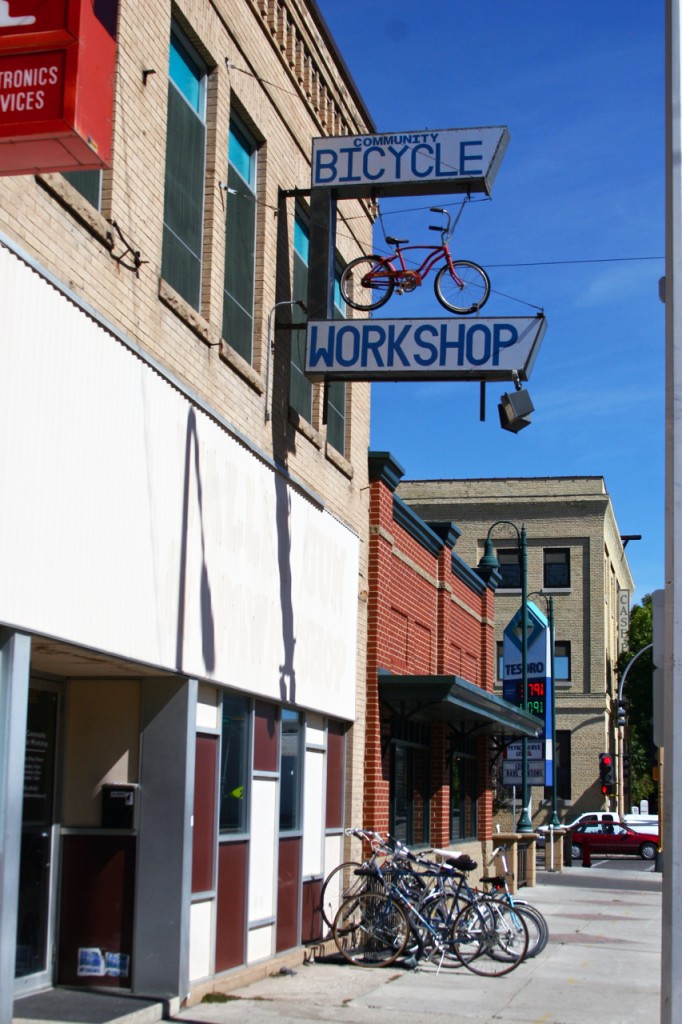
Bike theft has been a serious problem on campus and in the Moorhead community for years.
According to Lieutenant Tory Jacobson of the Moorhead Police Department, 49 bike thefts have been reported from on- and off-campus in just the last three months. These numbers are steady throughout the year and have not dropped from years past. Although there is no way of telling how many bike thefts go unreported, if a bike owner does not know the serial number on his or her bike, there is not a whole lot the police can do.
“It’s a mode of transportation with a semi-high property value, and some people will steal bikes just to get themselves to another location,” Jacobson said. The police pick up an excess of over 300 abandoned bikes per year, which if not claimed or matched with a report, are sold at an annual auction.
Although most stolen bikes do not get returned to their rightful owners, bike enthusiasts may not need to fork over more cash just yet. The Fargo Moorhead Community Bike Shop offers help to those in need.
Opening in 2007, the FM Community Bike Shop is a completely volunteer-based organization that helps people earn a bike.
Sarah Schaan, one of the many volunteers at the shop, helps people get set up with the program. She is a bike enthusiast and is very passionate about what this bike shop has to offer.
“The majority of people who come here to earn bikes are those without transportation, college kids, and homeless folks,” Schaan said.
Anyone can come into the shop, and although most are looking to earn a bike, some just want to learn about bikes or get into bike culture. The environment in the store is very friendly with workers smiling and offering coffee to one another. Although things may look a little chaotic, all of the volunteers are eager to help.
To earn a new bike, a system has been set up by the store called “work trade.”
“We set people up with a sheet to track their time,” Schaan said. “Five hours equals one bike and each hour is worth ten credits. So fifty credits is a bike,” said Schaan.
“Whenever they come in and volunteer, they can sort tubes, strip bikes down that are unsalvageable, put things in stock or take frames apart to recycle. Once they complete their five hours, they go to the basement and look in the stock to pick a bike,” said Schaan. All of the bikes available in the basement have been donated from the public and are in various forms of repair.
At the end of this work trade arrangement, volunteers don’t just walk away with a half-working bike. The people at FM Community Bike Shop help to repair all parts of the bike to be in working condition using donated parts from other bikes.
So if someone just needs to earn a part for their bike, they can come in and do a work trade for that part, too. The whole organization is also based in educating people to fix their own bikes. The bike workshop hopes this sort of training will inspire people to come in and help others to fix up bikes.
“Our biggest problem right now is difficulty pumping info into the community and keeping consistent volunteers,” Schaan said. “Anyone can learn bike maintenance, but having the confidence to help others can be intimidating.” Currently the FM Community Bike Shop is working to create a program to train bicycle mechanics.
Although the bike shop may not be well-known yet, there is a small fan base already brewing on campus. One Concordia student who has spent time at the bike shop is Addi McHenry.
“I love it there because the staff is always so friendly and willing to help,” McHenry said. “It’s nice to have a place like that in Fargo. The area needs more places like it.”
The shop’s hours can be found on their website: http://www.fmbikeworkshop.org/.


This is really cool! My bike was stolen right out of my garage senior year, and this would have been a really great way to get a replacement and learn about maintenance. Great story, Kaia.